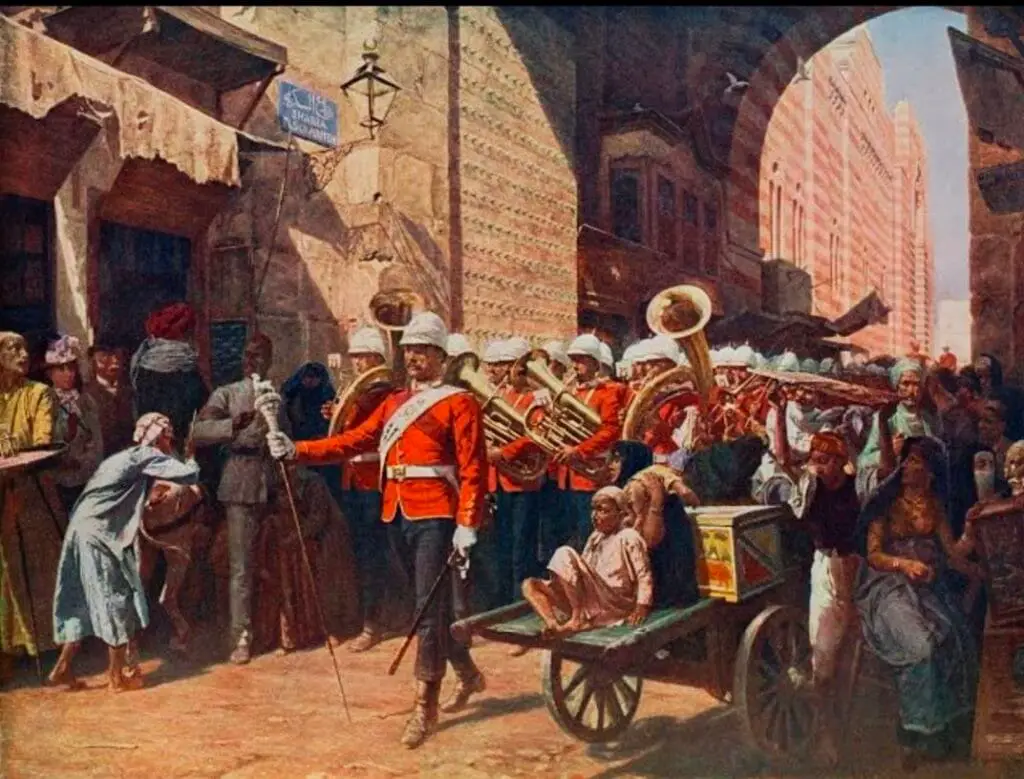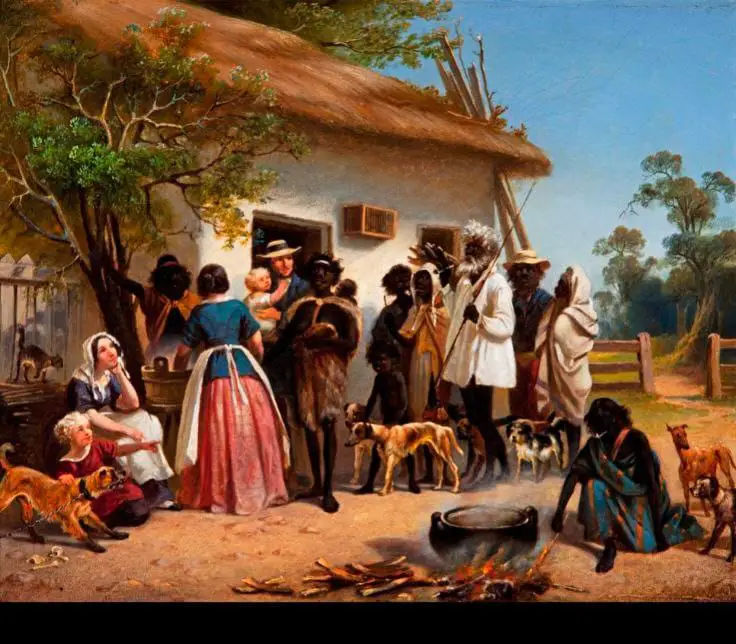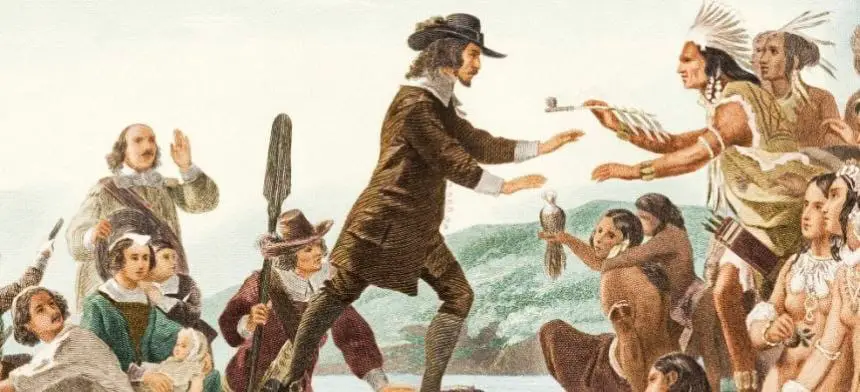
Colonialism: Meaning
Colonialism is a political, economic, and social system in which one country establishes control over another, often distant, territory or nation. The colonizing power exploits the resources, labor, and wealth of the colonized land for its benefit, typically imposing its own culture, political structures, and economic systems on the colonized people. Colonialism often results in the domination of the indigenous population and their subjugation to foreign rule.
Colonialism was particularly prevalent from the 15th to the 20th century, with European powers like Britain, France, Spain, Portugal, and the Netherlands establishing colonies across Africa, Asia, and the Americas.

Basic Features of Colonialism
- Economic Exploitation:
- Resource Extraction: Colonies were primarily used for the extraction of natural resources such as minerals, crops, and other raw materials. The colonial powers exploited these resources to fuel their own industrial growth and development.
- Trade Monopoly: Colonial powers often imposed trade monopolies, forcing colonies to trade exclusively with the colonizer at unfavorable terms. This led to the economic dependence of the colony on the colonizer.
- Labor Exploitation: Colonialism involved the exploitation of local labor, either through forced labor systems or low wages. Indigenous populations were often coerced into working in plantations, mines, or other colonial enterprises.
- Political Domination:
- Foreign Governance: Colonial governments were imposed on the colonized territories, with the colonial power often establishing direct rule or appointing local elites loyal to the colonizers. Indigenous systems of governance were either dismantled or subordinated.
- Imposition of Foreign Laws: Colonial powers imposed their legal systems on the colonized lands, often disregarding local customs, traditions, and systems of justice.
- Military Control: Colonialism was often maintained through military force. Colonizing powers stationed military personnel in colonies to suppress resistance, maintain order, and protect their economic interests.
- Cultural Domination:
- Imposition of Language and Religion: Colonizers often imposed their language, culture, and religion on the local population. This process was seen as a way of “civilizing” the indigenous people, who were considered inferior by the colonizers.
- Cultural Erasure: Indigenous cultures, languages, and traditions were often suppressed or destroyed, with colonizers seeking to replace them with their own cultural practices and belief systems.
- Western Education: Colonial powers introduced their own systems of education, teaching the colonized population the history, values, and knowledge systems of the colonizer while marginalizing indigenous knowledge.
- Territorial Expansion and Settlement:
- Conquest and Annexation: Colonies were often established through conquest, with the colonizers forcibly taking control of indigenous lands. Territorial expansion was a key feature of colonialism, as colonizing powers sought to expand their influence and resources.
- Settlement Colonies: In some cases, especially in the Americas, Australia, and parts of Africa, colonialism involved the settlement of Europeans in the colonized territories. Settlers often displaced indigenous populations and took control of land, leading to long-term demographic and social changes.
- Racial Hierarchies and Discrimination:
- Racial Superiority: Colonialism was often justified through the idea of racial superiority, with European powers viewing themselves as superior to the indigenous populations of the colonies. This led to the creation of rigid racial hierarchies, with the colonizers at the top and the colonized at the bottom.
- Discrimination and Segregation: Colonial rule often institutionalized racial discrimination, with different legal and social systems for colonizers and the colonized. Segregation in housing, education, and public spaces was common in many colonies.
- Dehumanization: Indigenous people were often dehumanized, depicted as “savages” or “uncivilized,” which justified the exploitation and subjugation they faced under colonial rule.
- Resistance and Repression:
- Local Resistance: Indigenous populations often resisted colonial rule through rebellions, protests, and uprisings. However, these resistance movements were frequently met with brutal repression by colonial authorities.
- Colonial Repression: Colonial powers used military force, imprisonment, and violence to suppress any opposition to their rule. This often involved massacres, forced relocations, and the destruction of indigenous communities.
- Introduction of New Economic Structures:
- Cash Crop Economy: Colonizers often reorganized the local economies to produce cash crops for export, such as cotton, coffee, sugar, or rubber, rather than allowing for subsistence farming. This shift made the colonies dependent on global markets controlled by the colonizers.
- Infrastructure Development: While colonial powers often built infrastructure such as railways, ports, and roads in the colonies, this was mainly done to facilitate resource extraction and the movement of goods to the colonizer, not to benefit the local population.
- Creation of Modern Nation-States:
- Redrawing of Boundaries: Colonial powers often redrew the boundaries of their colonies without regard for ethnic, cultural, or historical realities. This led to the creation of modern nation-states with artificial borders, which has been a source of conflict in post-colonial periods.
- Nation-State Formation: Many modern countries emerged from former colonies, and colonialism played a role in shaping their political, social, and economic structures. The legacy of colonialism can still be seen in the nation-state system that exists today.

Conclusion
Colonialism, as a system of domination and exploitation, profoundly shaped the political, economic, and cultural development of the colonized territories. Its basic features—such as economic exploitation, political domination, cultural suppression, and racial hierarchies—have had lasting impacts on the colonies, many of which continue to struggle with the legacies of colonialism long after gaining independence. While colonialism is largely a thing of the past, its influence persists in the form of economic disparities, cultural changes, and ongoing conflicts in post-colonial societies.
